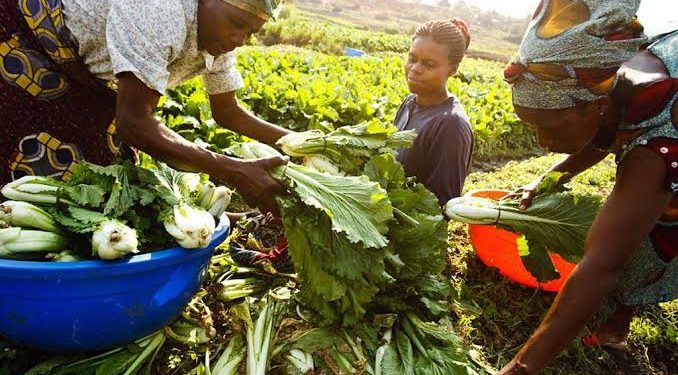The Federal Government of Nigeria has launched a nationwide data audit and registry of farmers to eliminate “briefcase farmers” individuals who fraudulently benefit from agricultural support schemes , as part of a broader effort to curb the ongoing food crisis and ensure equitable access to government interventions.
Announcing the initiative in Kaduna on Wednesday, Minister of State for Agriculture and Food Security, Senator Aliyu Sabi Abdullahi, said the move was a central pillar of President Bola Tinubu’s declaration of a state of emergency on food security. He made the disclosure at a technical session of the Government-Citizens’ Engagement Forum, organised by the Sir Ahmadu Bello Memorial Foundation.
According to the minister, the data-driven approach will identify and verify real farmers to ensure that government resources and interventions directly reach those who cultivate the land. He described the new strategy as essential to building rural prosperity and increasing agricultural productivity across the country.
“Our priority is simple: ramp up production, reduce food prices, and ensure equitable access to support,” he said.
The minister noted that one of the government’s flagship programmes, the Agro Pocket initiative, had already surpassed its target by cultivating over 133,000 hectares of wheat across 15 northern states. Jigawa alone contributed more than 50,000 hectares. Another intervention targeting 44,500 rice farmers is currently underway, supported by agricultural extension services to address Nigeria’s poor farmer-to-extension ratio, estimated at 1 to 25,000.
To boost mechanization, the government has deployed 2,000 Belarusian tractors and 9,000 farm implements nationwide, while also advancing the development of Special Agro-Processing Zones (SAPZs) to improve market access and add value to farm produce, thereby increasing incomes for smallholder farmers.
Senator Abdullahi added that research institutes had released improved crop varieties, including tomato strains resistant to the devastating “tomato Ebola” disease. In the livestock sector, efforts are being made to establish grazing reserves, livestock villages, and transit shelters, with work underway to finalise a national dairy policy.
The government has also completed work on three major dams; Nwabi Yashin, Nwape, and Amla unlocking 2,700 hectares for irrigation farming. Meanwhile, mini-hydro projects are expected to bring off-grid electricity to farming communities.
The minister emphasized that these actions go beyond short-term relief and are aimed at building long-term resilience in Nigeria’s agricultural system. He cited new programmes to reclaim university farmlands, train youth and women, and reform outdated systems.
He called on leaders, particularly in the North, to reject impostors manipulating government programmes meant for genuine farmers. “We must discredit such people. The time to act is now,” he said.
Abdullahi was joined at the session by other top officials, including the Ministers of Livestock Development, Environment, and Water Resources and Sanitation, as well as the heads of key agricultural agencies and programmes. The team outlined the administration’s coordinated strategy to modernize agriculture, combat food insecurity, and improve rural livelihoods through inter-ministerial collaboration.










